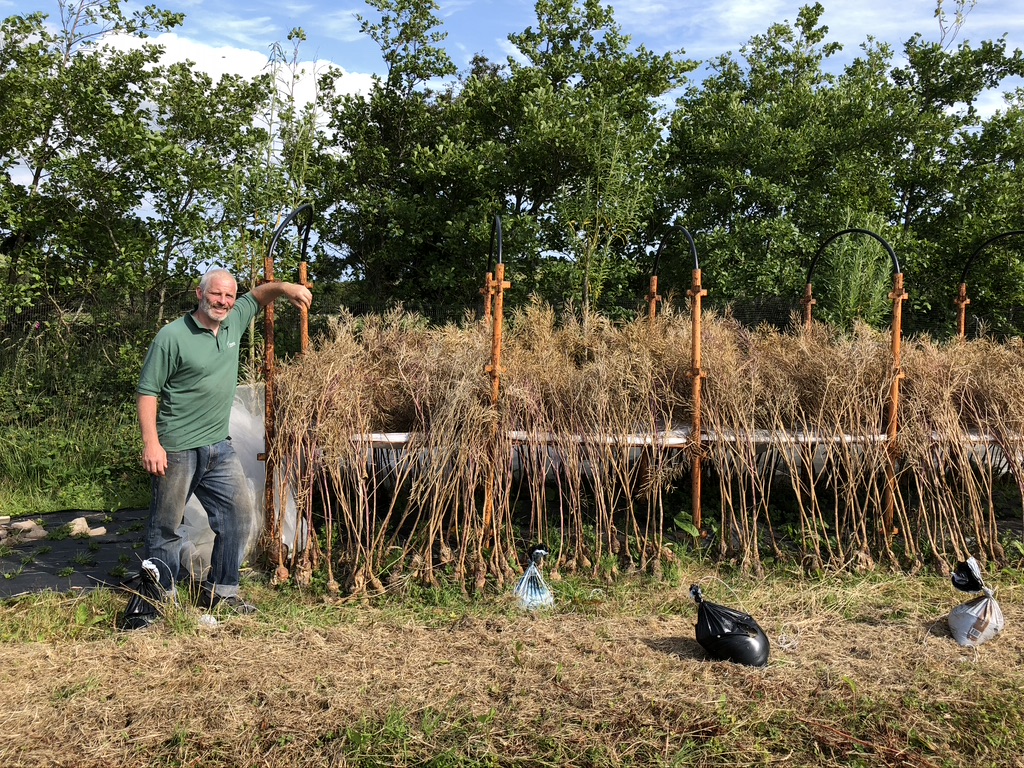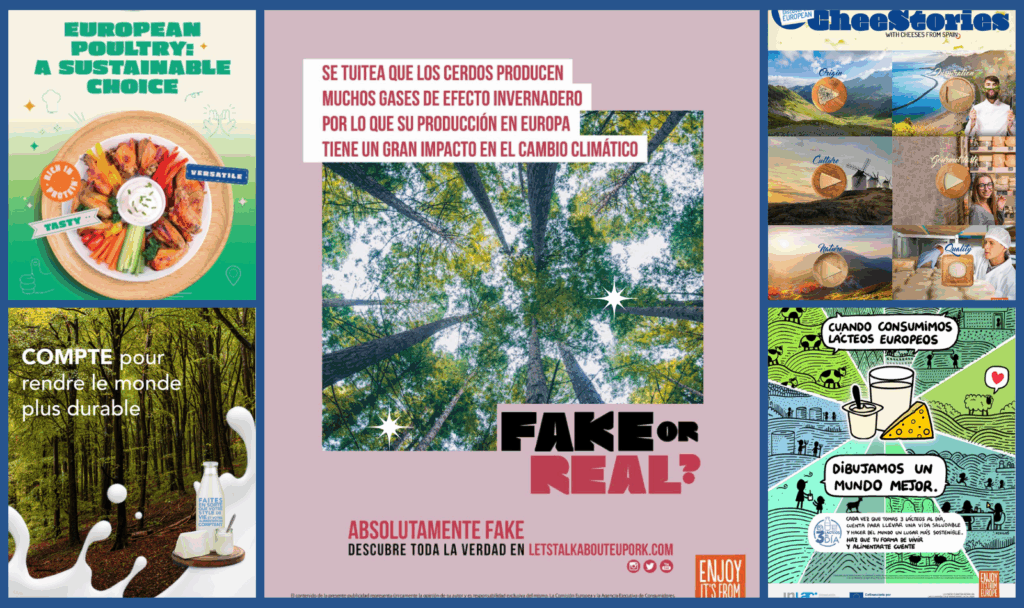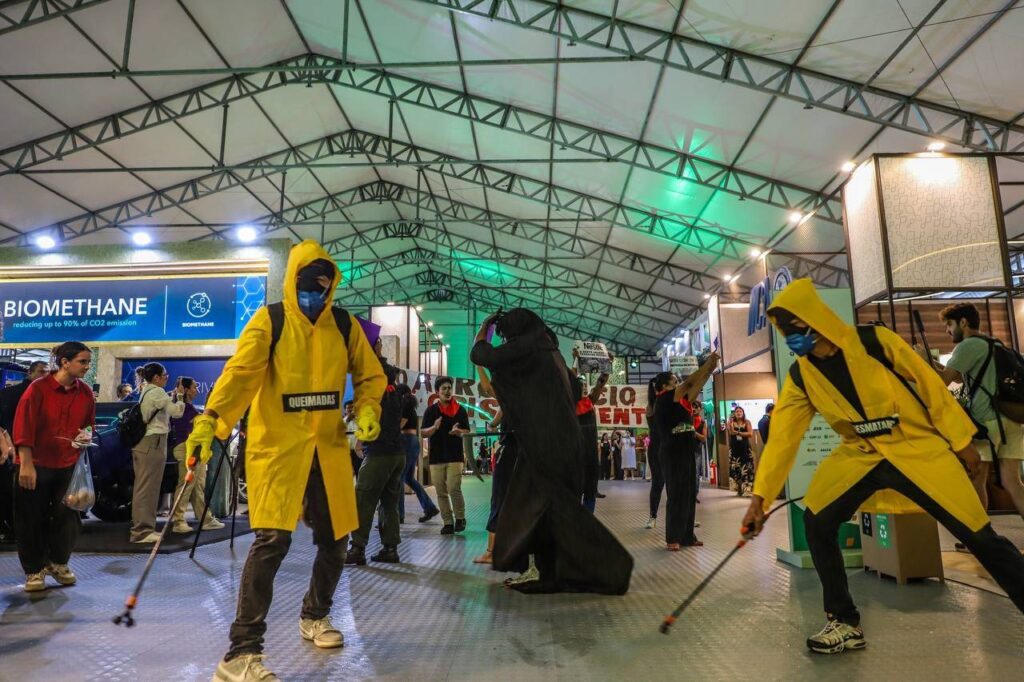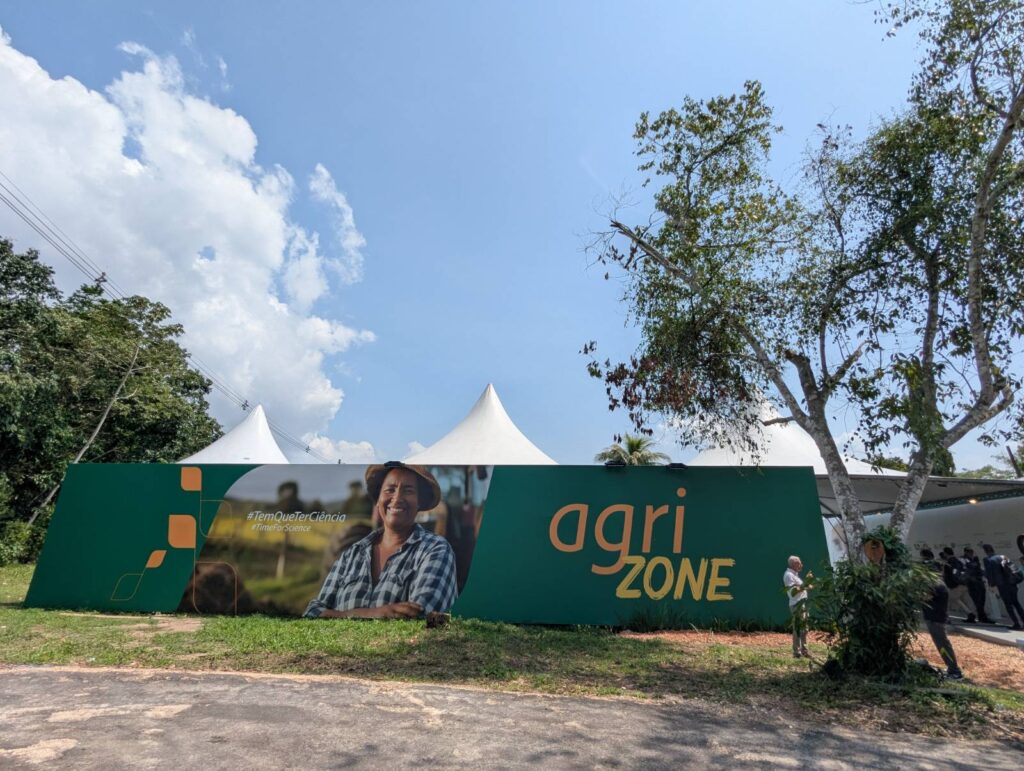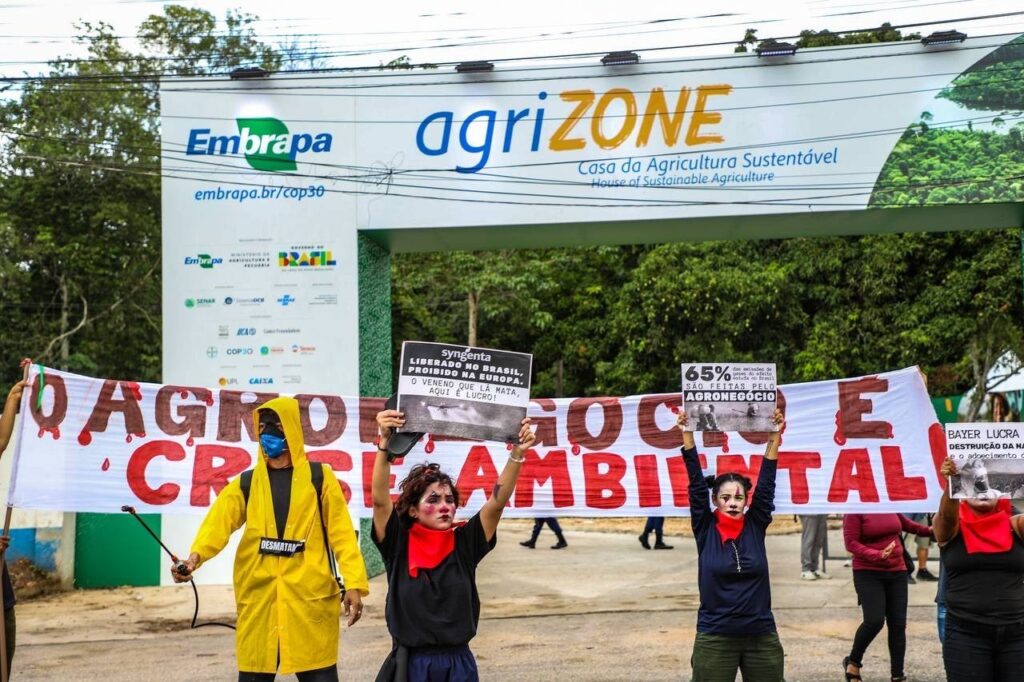Smallholders are calling on the EU to scrap Ireland’s nitrates derogation, arguing that pollution of the air, waterways and soil is causing havoc to the land and their livelihoods.
Ahead of a snap general election taking place this Friday, November 29, Ireland’s three biggest political parties have all pledged to fight for a continued exemption from the EU Nitrates Directive, which permits selected farmers to spread more artificial fertiliser and manure than normally allowed.
Ireland is one of just five EU countries to have recently held a derogation from the European Commission. It is likely to be the only country to seek an extension beyond 2026, and ministers have until the end of this year to apply.
Subscribe to our newsletter
Stay up to date with DeSmog news and alerts
Taoiseach Simon Harris, who described the derogation as a “national asset” in September, reaffirmed his commitment in a video posted by his party, Fine Gael, on TikTok last week.
However, experts have questioned whether cross-party political promises to improve water quality are compatible with a continued derogation.
A major new report released last month by Ireland’s Environment Protection Agency (EPA) called for “immediate, substantial and sustained reductions in nitrogen pollution” and an “urgent transformational change” of food systems.
The report found Ireland was not on track to meet climate targets, that water bodies were not meeting EU standards, and that nutrient levels in water remained high. High levels of nitrates in fertiliser and manure leach into lakes and rivers, where it boosts algae growth, reducing oxygen levels in delicate ecosystems and killing off plants and wildlife.
Despite strong scientific evidence of the harm caused by nitrates-powered cattle and dairy farming – agriculture accounts for 38 percent of Ireland’s emissions and 99 percent of ammonia air pollution – the government, backed by Ireland’s intensive farm lobby – is determined to win over the EU to extend the permit to 2026.
But small-scale producers who spoke to DeSmog take a different view. They argue that excessive nitrates are wrecking their land – and that farmers deserve a more holistic alternative that will secure farmers with a sustainable long-term future.
Farmers React
Thomas O’Connor and his wife Claire converted a conventional sheep farm in County Kerry to a mixed smallholding 15 years ago, and now farm land dedicated to horticulture, agroforestry and permaculture, as well as 13 acres of native Irish woodland.
O’Connor is a member of Talamh Beo, a grassroots farmers group in Ireland that aims to create a more sustainable food system, with an emphasis on rebalancing farming systems with the natural world, restoring land and water, and improving access to nutritious and affordable food.
“The derogation is a con,” the former pub landlord told DeSmog. “It does not help farmers transition away from high intensity and environmentally damaging commodity production.
“It makes farmers less resilient and more dependent on external inputs such as excessive nitrogen [fertiliser] which is the only way agribusiness can continue doing industrial commodity-based agriculture. But we must consider the waste coming out of those systems into our rivers and wider environment.
“And if they don’t bring in that amount of inputs to grow their monoculture grass then that whole system falls apart because it’s all overstocked. It’s Big Dairy and Big Beef that really wants the derogation.”
‘Every Inch of Land’
Cork dairy farmer Donal Sheehan benefited from the derogation until 2018, when he decided to cut back his use of nitrates fertiliser after becoming more aware of the negative impacts of intensive farming on his land.
Over 7,000 of Ireland’s 127,000 farmers applied for derogation in 2023, the vast majority of these dairy farmers. Producers with the exemption have been operating with the reduced limit of 220g organic nitrogen per hectare, down from 250kg, since the start of the year, after the European Commission found water quality was poor, and had not improved.
Donal, along with his wife Ita and two children, live on a 70-cow dairy herd on Blossom Farm near Castlelyons in County Cork. He dedicates a proportion of his farm to biodiversity including ponds, pollinator strips and wild bird cover, and is one of the main drivers of an innovative new pilot project called The Bride (Biodiversity Regeneration In a Dairying Environment).
After reducing his herd from 75 to 65 cows, Sheehan began a transition to organic farming last year. Despite a recent government push to increase uptake, the practice remains comparatively niche – last year, just 4.5 percent of agricultural land was organically farmed.
Nitrates-heavy artificial fertilisers are prohibited in organic production, while pesticides are heavily restricted. Organic farmers keep soil fertile by growing and rotating crops, adding matter such as compost or manure and using clover to fix nitrogen from the atmosphere.
This is not a switch that many farmers feel they can easily make, Sheehan says. The current system is dictated by fluctuating milk prices set by dairy processors. Producers frequently have to sell higher volumes to make a profit – and farm their land intensively.
“The current system encourages every inch of land to be maximised for producing food,” Sheehan added.
“There’s nothing left for the other services that farmers can deliver such as cleaner water and biodiversity. You need to drive production to grow grass, to keep the volume of milk going and to make a living.”
Climate Impacts Bite
Already, producers told DeSmog, the impacts of climate are making it harder for farmers to make ends meet, with fluctuating temperatures and more intense and unpredictable rainfall harming productivity.
“It was a very hard grass-growing year, the land is on the limit,” Sheehan said. “Everyone is on a treadmill to produce as much from their land as possible.”
“It’s definitely more unpredictable, no doubt about it,” he added. “There are very few cold snaps now in the winter, which has implications – plant and insect species hibernate… everything’s out of sync.”
“I was never comfortable with the fertiliser I was putting out, as climate change was kicking in, I could see more and more what I was putting in was causing damage”
Donal Sheehan, dairy farmer
Farmers find themselves in a difficult position: reducing the levels of harmful nitrates-heavy fertilizers will likely mean a reduction in herd size, since organic farming in Ireland requires more space per animal.
Less cattle in the fields would help reduce the nitrates leaching into land and water, but is financially problematic under the current food system, which rewards quantity over quality.
“I was never comfortable with the fertiliser I was putting out, as climate change was kicking in, I could see more and more what I was putting in was causing damage,” Sheehan told DeSmog.
“Organic ticks all the boxes – your only tools are the sun, the soil and the rain. No chemical fertiliser, no water quality problems; all the slurry [liquid manure] has to be regenerated on the farm, and you have to buy organic grain.
“By reducing the number of cows, you create fewer emissions, and you end with a more sustainable food product: higher animal welfare standards, low carbon footprint, no chemicals.”
Small Producers Suffer
Mimi Crawford is a raw milk, cream and buttermilk farmer with a smallholding in Cloughjordan, Co. Tipperary, which she runs with her husband Owen. They have two young children.
Mimi says that while they manage financially, as one of just five raw milk farms in Ireland, the current food system doesn’t benefit small producers.
In her view, Ireland wouldn’t enforce any environmental regulations relating to agribusiness if they weren’t forced to do so by the EU.
“Between the high numbers of animals and the use of artificial nitrogen, we’re compounding all of our environmental pollution problems,” she said.
Mimi pointed to large agribusiness groups, who have consistently lobbied in favour of the derogation. Major dairy exporter Dairygold, which made a €2.9 million post-tax profit last year, has pledged to work “hand in hand with the government” to protect its dairy farms – 60 percent of which are in derogation.
In September, dairy processors and major farm lobby groups, including the Irish Farmers’ Association, launched a “joint declaration” in support of the derogation, which was timed to coincide with a visit from the European Commission’s visit to Ireland.
“Dairy processors have pushed that pro-derogation narrative for their own benefit, expanding their facilities to expand their dairy production,” Crawford said. “At some point there’s an argument for quality over quantity. Our food is decreasing in nutritional value and the land is being wrecked.”
Call for Transition
The farmers who spoke to DeSmog all agreed that the onus was on the Irish government to incentivise a switch to more sustainable farming.
Teagasc, Ireland’s state agency for food and agriculture, has defended the retention of Ireland’s derogation from the EU Nitrates directive in spite of the national failure to improve water quality. The Department of Agriculture, Farming and the Marine (DAFM) has also consistently backed the measure.
O’Connor claims the system benefits the relatively few farmers in derogation – just five percent of Ireland’s farmers are utilising this exemption. Around a third (32 percent) of derogation applicants last year had more than 200 cows.
“The derogation is essential for a few extremely large farmers, because they cannot run their system without having those high fertiliser inputs,” he said, adding that average farmers are led to believe they need more artificial nitrogen than the grass needs. “What the majority of farmers really need is non-industry, honest, open knowledge and information, that will help them move to a more agroecological and nature based system,” he said.
Farmers also need financial support and a transition period supporting them towards sustainable farming, he added.
“Maintaining the derogation only delays what needs to be done,” he said. “There needs to be a wider conversation around how agriculture can make this transition.”
Crawford agrees. “The derogation needs to go, but it needs to be phased-out, and a wider, more holistic perspective needs to be taken, otherwise it’s not fair on farmers. This isn’t farmers’ fault – they’ve been given the advice to expand and take advantage of the derogation. The whole system needs to change.”
Farmers had been “pushed absolutely to the limit”, O’Connor added.
“We have to deal with this now, because the only hope we have in the future is turning around and starting to fix and repair those systems,” he said. “If we keep with the derogations and we don’t change business as usual systems, then there’s no hope for the next generation, or even this generation.”
Subscribe to our newsletter
Stay up to date with DeSmog news and alerts


